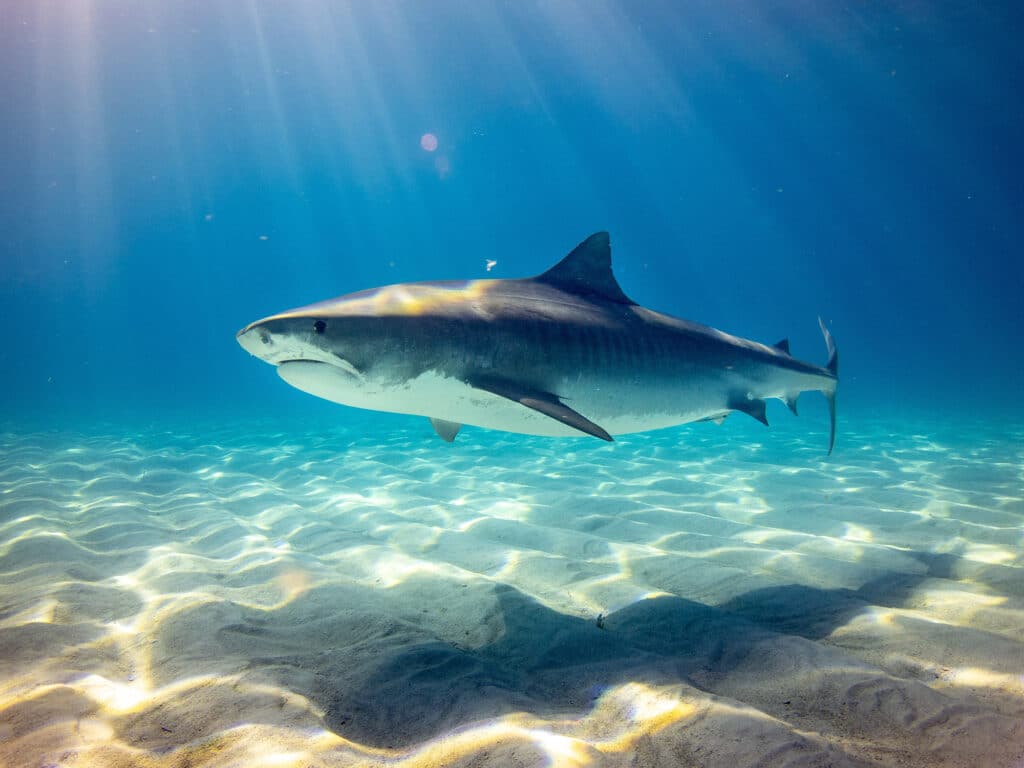
Ever since “Jaws” hit theaters in the late 1970s, beach fans have been going a little nuts about shark attacks. But should you really worry about being targets by those menacing creatures when venturing into the waters off Florida’s coasts? The answer is a bit complicated.
The United States is actually the leader in unprovoked shark attacks with 41 in 2022. The U.S. is followed by Australia, which had nine attacks. Worldwide, there were only 57 reported shark bites – five were fatal, according to the International Shark Attack File at the University of Florida.
How Many Shark Attacks Happen in Florida?
Florida was indeed the world capital of unprovoked shark attacks in 2022. The total number, however, was just 16. That is 39 percent of all attacks in the United States.
If you’re wondering which county had the most shark bites, look at Volusia County – home to Daytona Beach.
But it’s the city just to the south – New Smyrna Beach – that was dubbed America’s “deadliest beach” by Travel Lens. That designation, however, is based on surf zone fatalities and hurricanes in addition to shark bits.
Seven other Florida beaches made the Travel Lens list of deadliest beaches, including Cocoa Beach, Ormond Beach, Panama City Beach, Melbourne Beach, Jacksonville Beach and Fort Lauderdale.
If case you’re curious about which non-Florida beaches made the Top 10 list, they are Myrtle Beach (S.C.), Oak Island (N.C.) and Gulf Shores (Alabama).
How Common Are Shark Attacks in Florida?
The number of shark attacks in 2022 was actually lower than the state’s five-year average of 22 attacks. The number appears to be decreasing regularly.
“It’s likely that fatalities are down because some areas have recently implemented rigorous beach safety protocols, especially in Australia,” Gavin Naylor, the director of the Florida Program for Shark Research at the Florida Museum of Natural History, told the UK’s Guardian.
It’s the publicity about shark bites that seems to drive the anxiety.
“The chances of being attacked by a shark are nearly zero,” David Angotti of Florida Panhandle.com told the Guardian. said. “For people that live in the U.S., you are approximately 50 times more likely to die by a lightning strike, and 10 times more likely to die by a firework accident compared to a shark attack.”
How to Avoid a Shark Attack
Of course, when you read the odds are “nearly zero” of suffering a shark bite, the first question is: How can I make the odds even lower? Common sense goes a long way toward avoiding a shark attack in Florida.
The Florida Fish and Wildlife Conservation Commission offers these tips to reduce the odds of a shark bite off Florida’s beaches.
- The No. 1 tip: Avoid going into the water during darkness or twilight hours. That’s when sharks are at their most active.
- Stay away from areas where sharks tend to congregate. That includes fishing piers, docks, and areas near sandbars. Avoid murky water. If you see birds diving for fish in the water, that’s a danger sign that sharks could be present.
- The urban legend that sharks smell blood isn’t a legend at all – it’s a fact. Don’t get into the water if you have an open wood or are menstruating.
- There’s another legend that the presence of dolphins scares away sharks. That’s indeed a myth. Because sharks and dolphins eat the same food, they can very well be near each other.
- As you learned in “Jaws,” don’t splash around – that will attract sharks’ attention. Likewise, don’t let pets in the water.
See the full list of FWC recommendations here.
More stories like this:
- Popular Myths about Florida Debunked
- Urban Legends about Florida That Keep You Awake at Night
- Was There Actually a Fountain of Youth in Florida Once?
- Is St. Augustine Really the Oldest City in America?
- 11 Crazy Things To Co in Orlando
- 25 Fun Things to Know About Disney’s Animal Kingdom on its 25th Anniversary
- Things to do in Orlando Besides Theme Parks
- Is There a Six Flags Park in Florida?
- Is Jacksonville Really the Country’s Biggest City?
- Is Florida the Hurricane Capital of the World?
- Why Should You Shuffle Your Feet on Florida Beaches?
- Why is Orlando called ‘The City Beautiful?’





